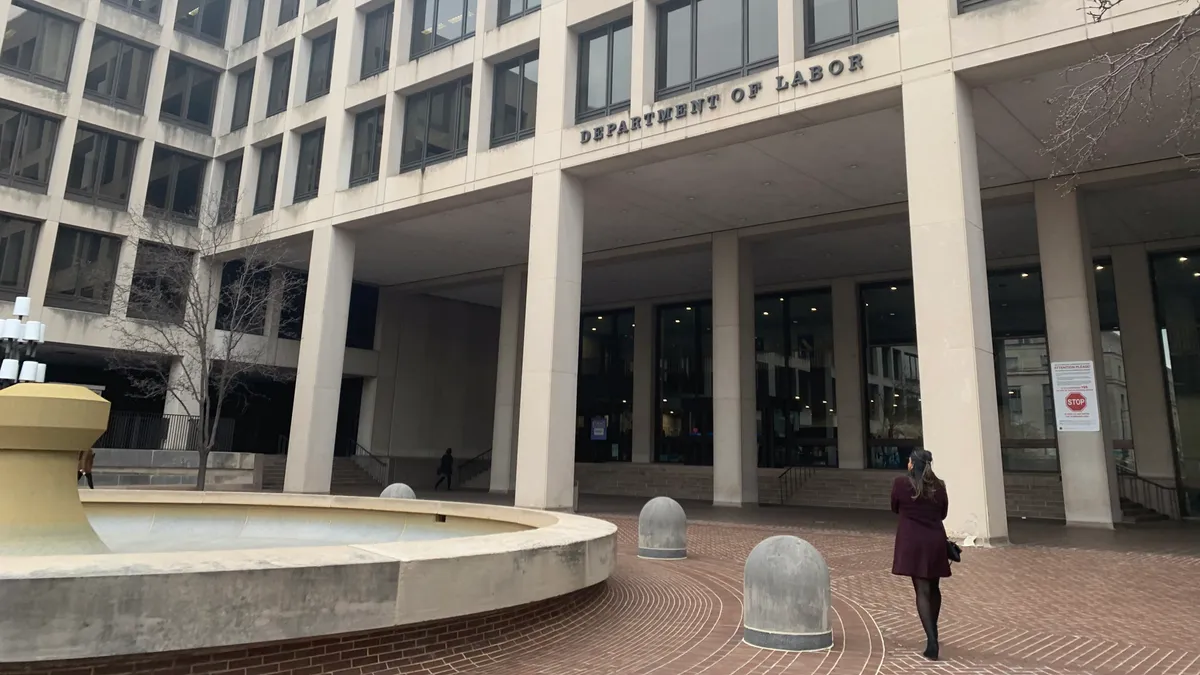The U.S. Department of Labor issued guidance Monday making clear that employers remain responsible for compliance with federal laws when adopting artificial intelligence or other automated systems in the workplace.
In a memo to Wage and Hour Division staff, Administrator Jessica Looman outlined how the Fair Labor Standards Act and other federal labor laws apply to AI use and how “human oversight” is vital in protecting workers.
“As new technological innovations emerge, the federal laws administered and enforced by WHD continue to apply, and employees are entitled to the protections these laws provide, regardless of the tools and systems used in their workplaces,” the bulletin read.
FLSA
Employers using AI or automated systems to track employee productivity, activity and hours worked cannot use those tools to dock employees’ pay, per the memo.
The FLSA entitles employees to be paid the federal minimum wage and overtime, when applicable, for hours worked, “regardless of the level of productivity or performance of the employee,” the memo said. “Furthermore, ‘hours worked’ are not limited solely to time spent on active productive labor but may, for instance, include certain time spent waiting and breaks of short duration.”
Employers also can’t use AI or other systems to take adverse actions against workers who engage in protected activities, the memo said. “For example, the use of automated worker surveillance systems to detect, target, or monitor workers whom the employer suspects have filed a complaint with WHD or have cooperated with WHD investigators could constitute unlawful retaliation.”
FMLA
Employers may run afoul of the Family and Medical Leave Act if AI or automated systems incorrectly deny workers leave, miscalculate time off earned or request too much information from workers, according to the memo.
“The use of AI or automated technologies should be overseen by the employer to avoid the risk of widespread violations of FMLA rights when eligibility, certification, and anti-retaliation and anti-interference requirements are not complied with. Employers are ultimately responsible for ensuring that these systems comply with the law,” per the memo.
The PUMP Act
Employers are responsible for ensuring nursing workers have reasonable break time and space to express milk at work under the Providing Urgent Maternal Protections for Nursing Mothers Act and are not penalized by AI or automated systems that track hours and productivity, the memo said.
“Automated scheduling or timekeeping systems that limit the length, frequency, or timing of a nursing employee’s breaks to pump would violate the FLSA’s reasonable break time requirement,” the memo said.
The Employee Polygraph Protection Act
AI tools that can use eye measurements, voice analysis, micro-expressions or other body movements to determine lying could be considered lie detector tests, which are prohibited by the Employee Polygraph Protection Act, the memo advised.
“Employers’ use of AI or other technologies to gauge an individual’s truthfulness may be subject to the restrictions on lie detector tests provided under the EPPA,” it said.
The labor department also on Monday issued an FAQ for federal contractors on how to comply with equal employment opportunity requirements when using AI or automated systems. The updates come six months after President Joe Biden issued an executive order on AI use.













